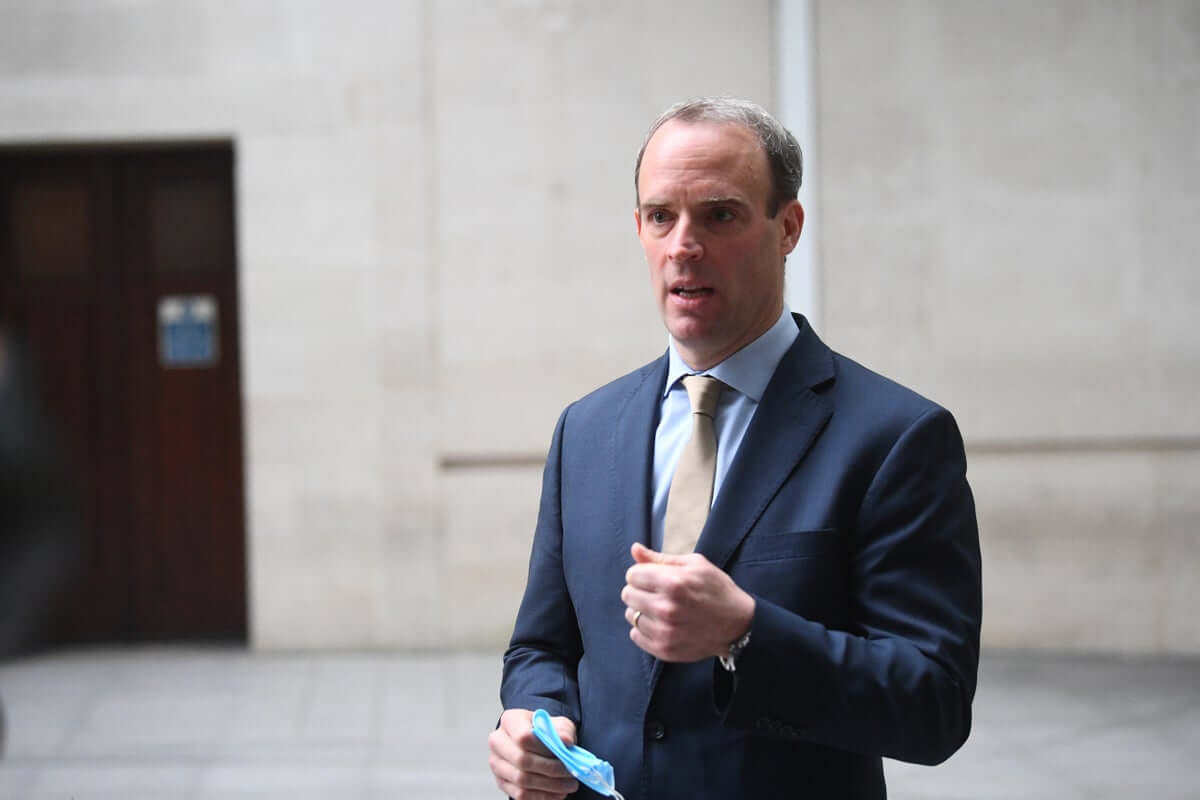On behalf of the British Foreign, Commonwealth, and Development Office (FCDO), Foreign Secretary Dominic Raab on Thursday announced cuts in its aid to China by 95% while presenting the department’s Overseas Development Assistance allocations for the 2021-2022 period. While making the declaration, he said that the change is indicative of a “strategic shift” that realigns the British budget with its diplomatic goals, along with their overall aim to tackle global challenges.
Raab said that the United Kingdom’s (UK) aid will instead be spent on asserting “maximum influence as a force for good in Africa and strategically tilt towards the Indo-Pacific.” Out of its total aid budget, the FCDO will spend £8.1 billion or 80% on Overseas Development Assistance. Of this, 50% will be allotted to Africa, where the UK has identified a “national strategic interest”. Moreover, one-third of the aid budget will be spent in South Asia and the Indo-Pacific to further climate action, democratic principles, and enhance post-Brexit trade ties.
Meanwhile, a meagre amount of £900,000 will be allotted to China, which will solely focus on initiatives aimed to promote “open societies and human rights”. While Members of Parliament (MPs) from the opposition Labour Party welcomed the shift, they raised concerns about China receiving any aid from the UK. Sarah Champion, who is also the chair of the House of Commons international development committee, said that it is “astounding” that China continues to receive Overseas Development Assistance while some of the world’s poorest countries are facing “sweeping aid cuts”. She added that instead of expanding the aid budget on the world’s second-largest economy, British taxpayers would rather see assistance programs in countries that are facing severe humanitarian crises.
In other related developments, on the same day, British MPs also voted to declare China’s actions in Xinjiang against the Uighur Muslim community as “genocide”. The House of Commons unanimously passed a non-binding resolution calling out the “mass human rights abuses and crimes against humanity in Xinjiang Uighur autonomous region”. Hence, while the declaration of the treatment of Uighur Muslims itself is unlikely to have any tangible impact on Britain’s foreign policy, these recent developments are likely to detrimentally impact its relations with Beijing.
The decision to cut aids to China was made during Raab’s remarks focused on bringing down international aid by £4 billion. This is in furtherance of Prime Minister Boris Johnson’s decision to go back on the UK’s commitment to expend 0.7% of the country’s national income on foreign aid and instead bring it down to 0.5%, which was announced by the British Chancellor of the Exchequer Rishi Sunak in November last year. While making the announcement on Thursday, Raab said that “no country is immune” from the aid cuts, adding that further details for individual countries will be released soon.
To put things into perspective, Save the Children and Oxfam said that the overall decrease in UK foreign aid would result in humanitarian assistance being reduced by over £500 million. Hence, aside from the damage it could do to the UK’s image, it is estimated that the withdrawal of British aid would more tangibly result in over one million girls missing out on receiving an education, three million women and children losing out on ‘life-saving nutrition’, 5.6 million children being left unvaccinated, and ultimately around 100,000 deaths.
During the preliminary stages of the coronavirus outbreak, the IMF estimated that poor and developing countries would require $2.5 trillion in financial assistance. Similarly, the International Labour Organization (ILO) estimates a loss of over 300 million full-time jobs due to the pandemic. The World Food Programme (WFP) calculated that more than 265 million people are at risk of malnutrition. Likewise, the United Nations (UN) warns that over 400 million people now face poverty.
As the pandemic has worn on and its economic impact has multiplied, these same humanitarian crises have only become more acute. Therefore, the UK turning its back on millions of vulnerable global citizens at this time could be characterised as a gross dereliction of duty and absence of conscience, particularly given that Britain’s colonial history played such a large role in crystallising many of the inequities that are rife in today’s world. However, the Johnson administration has remained steadfast in the face of this disapproval, saying that the cuts would free up £4 billion during what it describes as a “domestic fiscal emergency”.
While the reduction of aid to China has more to do with the UK’s escalating diplomatic tensions with China that it does with budgetary constraints, it nonetheless forms part of its shrinking commitment to foreign aid across the globe.
UK Slashes Aid to China by 95%
British Foreign Secretary Dominic Raab announced the UK government’s decision to reduce aid to China by 95%, including assistance in disaster management relief and social and economic programs.
April 23, 2021

SOURCE: PA WIRE
